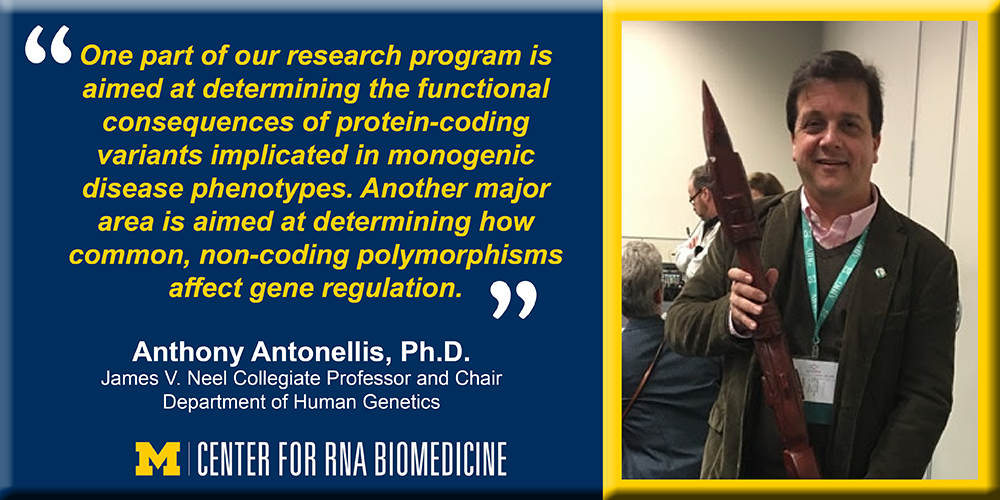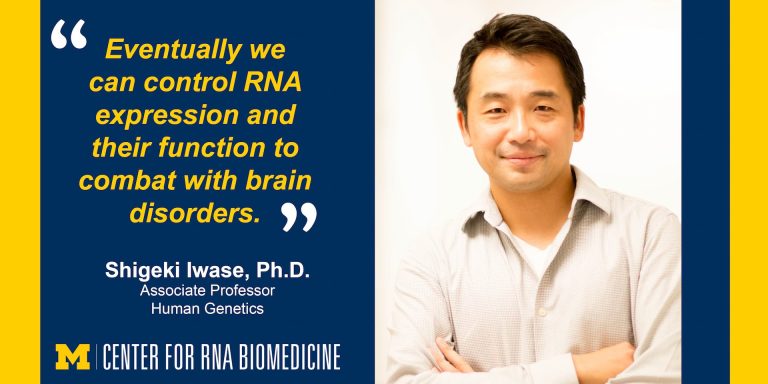RNA Faculty Spotlight — Anthony Antonellis, Human Genetics
Anthony Antonellis, Ph.D
James V. Neel Collegiate Professor of Human Genetics
Chair, Department of Human Genetics
Professor of Neurology, Medical School
Our group is broadly interested in how human genetic variation affects gene and genome function. One area of research is grounded in the observation that mutations in aminoacyl-tRNA synthetases cause myriad disease phenotypes including dominant axonal neuropathy and recessive syndromes that include neurodevelopmental defects. A second area of research aims to study how gene regulation—via cis-acting transcriptional regulatory elements including enhancers and promoters—plays a role in the development of myelinating cells of the peripheral and central nervous systems. We are always looking for outstanding students and post-doctoral fellows to advance each of these areas.
Visit Lab Website
View Michigan Research Experts Profile
Follow on Twitter: @sequenceman
- What are your research interests? I am very interested to define how genetic variation affects gene function. One part of our research program is aimed at determining the functional consequences of protein-coding variants implicated in monogenic disease phenotypes. Another major area is aimed at determining how common, non-coding polymorphisms affect gene regulation.
- Who/what brought you to science? I became interested in biology during college but wasn’t aware of research opportunities. After graduating I was fortunate enough to get a few positions in molecular biology labs and I knew right away that it was a good fit.
- What advice would you give to students who’d like to get more involved in research? There are so many opportunities for high school and college students to engage in research. My advice would be to take advantage of these options and to use them to determine if research is right for you.
- Are there any opportunities for students to engage in your projects, currently or in the future? Absolutely. We are always looking for hard-working, smart individuals to bring into our group.
- What skills would they need, and what could they expect to learn? Really just a good attitude, a willingness to work hard, and a genuine interest in our research. After that it’s up to us to train people in specific strategies.
- What profession other than your own would you like to attempt? Definitely a musician. I almost made the leap into a career in music and while I love my current career path, it’s one of my few regrets.


